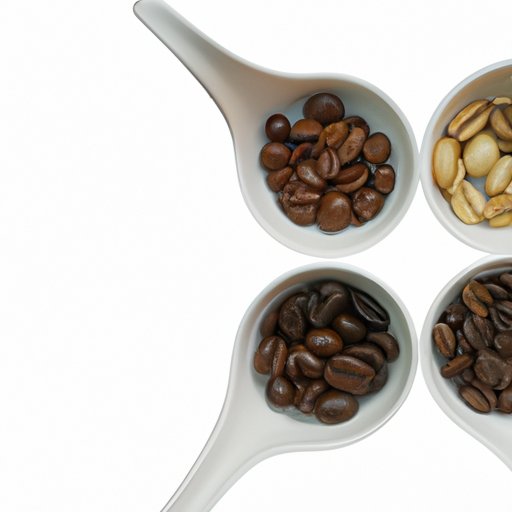
Introduction
If you’re like most people, caffeine is an essential part of your daily routine. Whether it’s a cup of coffee to start your day or an energy drink to power through the afternoon slump, caffeine is a ubiquitous part of modern life. But could your caffeine habit be contributing to unwanted weight gain?
Exploring the Link Between Caffeine and Weight Gain: What You Need To Know
Caffeine is a stimulant found in coffee, tea, energy drinks, and some medications. It works by blocking the action of adenosine, a neurotransmitter that promotes relaxation and sleepiness, and by stimulating the release of adrenaline, a hormone that increases alertness and energy.
While caffeine has many benefits, it also has some side effects. One significant side effect is its impact on the body’s metabolism, which is the process by which the body converts food into energy. When caffeine enters the bloodstream, it increases the body’s metabolism and causes it to burn more calories.
However, this increased metabolism also means that the body burns through nutrients more quickly, which can lead to increased hunger and overeating.
The Effects of Caffeine on Metabolism and Weight Loss
Studies have shown that caffeine can increase metabolism by as much as 11%. This increased metabolism can lead to a short-term decrease in hunger and an increase in the body’s fat-burning ability.
In fact, caffeine is often found in weight loss supplements because of its ability to boost metabolism and promote fat burning. However, these supplements typically include high doses of caffeine, which can have negative side effects such as jitters, anxiety, and insomnia.
Debunking the Myth: The Truth About Caffeine and Weight Gain
There is a common myth that caffeine causes weight gain. However, this myth is not supported by scientific evidence. The origin of this myth may be due to the fact that some people associate caffeine with sugary drinks or snacks, which can lead to weight gain.
However, caffeine by itself does not cause weight gain. In fact, studies have found that caffeine can help with weight loss when consumed in moderation. The key is to be mindful of the other ingredients in caffeinated drinks and snacks and to consume them in moderation.
Caffeine and Weight Gain: How Much is Too Much?
The recommended intake of caffeine is about 400 milligrams per day, which is roughly equivalent to four cups of coffee. However, caffeine sensitivity can vary widely among individuals, so it’s important to pay attention to how your body reacts to caffeine.
Consuming too much caffeine can lead to negative side effects such as jitters, anxiety, and insomnia. It can also lead to dehydration, which can interfere with the body’s ability to burn fat and maintain a healthy weight.
The Surprising Ways Caffeine Can Affect Your Weight and Health
While caffeine has many potential benefits, it can also have some surprising negative effects on your health and weight. For example, caffeine can increase appetite and interfere with sleep, both of which can contribute to weight gain.
Additionally, caffeine can cause elevated stress levels, which can lead to overeating and weight gain. By managing caffeine intake, you can avoid these negative effects and maintain a healthy weight.
How to Manage Your Caffeine Intake for Optimal Weight and Health
The best way to manage caffeine intake is to consume it in moderation and be mindful of the other ingredients in caffeinated drinks and snacks. For example, adding sugar or cream to coffee can significantly increase the calorie count and lead to weight gain.
Additionally, there are many caffeine-free alternatives to coffee and energy drinks, such as herbal tea and sparkling water. By choosing these alternatives, you can maintain energy levels without consuming excess caffeine.
It’s also important to pay attention to your caffeine sensitivity and cut back if you experience negative side effects. Finally, avoiding caffeine altogether in the evening can promote healthy sleep habits and contribute to weight loss.
Conclusion
Caffeine is a beloved part of many people’s daily routines, but it’s important to be mindful of its potential impact on weight and health. By understanding the science behind caffeine and weight loss and managing our caffeine intake, we can optimize our health and maintain a healthy weight.
So go ahead and enjoy your morning cup of coffee.





